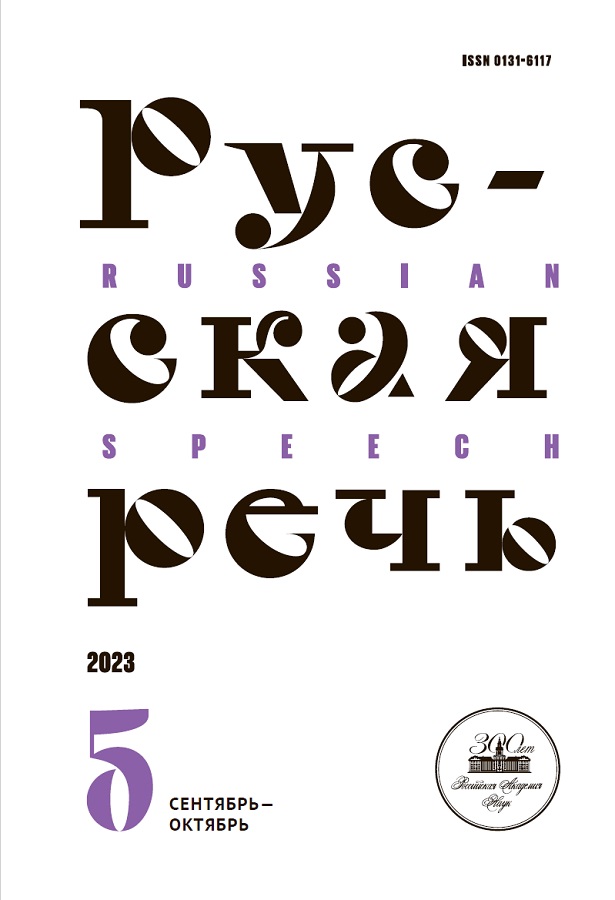Pulpety and How to Eat Them: To the Word’s History
- 作者: Novak M.O.1
-
隶属关系:
- Vinogradov Russian Language Institute of the Russian Academy of Sciences
- 期: 编号 5 (2023)
- 页面: 81-92
- 栏目: Articles
- URL: https://clinpractice.ru/0131-6117/article/view/652351
- DOI: https://doi.org/10.31857/S013161170028368-3
- ID: 652351
详细
The article review the history of the word pulpet ‘meatball’ in Russian. The author identifies the origin of this word’s borrowing, discusses its usage peculiarities and lexicographic fixation in chronological order. The word, borrowed from the Polish language at the end of the 17th century, has not been widely used in Russian. Its distribution has a regional limitation (south of Russia, Russian-speaking Ukraine) and it remains almost unnoticed in Russian lexicography. There are diachronic differences in the word use domains: in the 19th and 21st centuries, it appears for the most part in culinary recipes, while in the 20th century it is usually found in fiction. The lexeme semantics is defined differently in various sources: there is either an indication of the product’s shape (“balls,” “rolls”) or a reference to a synonymous culinary term (“dumplings,” “meatballs”). The lexeme is used primarily in the plural form and belongs to masculine nouns. Academic dictionaries of the Russian language ignore this lexical item; only a few dictionaries of loanwords from the 19th century incorporate it and erroneously interpret it as a borrowing from French. The word needs a proper etymological and semantic coverage in modern lexicographic volumes, at least in loanwords dictionaries.
作者简介
Maria Novak
Vinogradov Russian Language Institute of the Russian Academy of SciencesRussian Federation, Moscow
参考
- Барышникова С. В. Словари иностранных слов XIX века и отражение в них семантической адаптации иноязычной лексики. Автореферат дисс. … канд. филол. наук / Сахалин. гос. ун-т. Южно-Сахалинск, 2010. 23 с.
- История лексики русского языка конца XVII – начала XIX века. М.: Наука, 1981. 374 с.
- Leeming H. A 17th-Century Polish Cookery Book and Its Russian Manuscript Translation // The Slavonic and East European Review, vol. 52, no. 129 (Oct., 1974), pp. 500–513.









